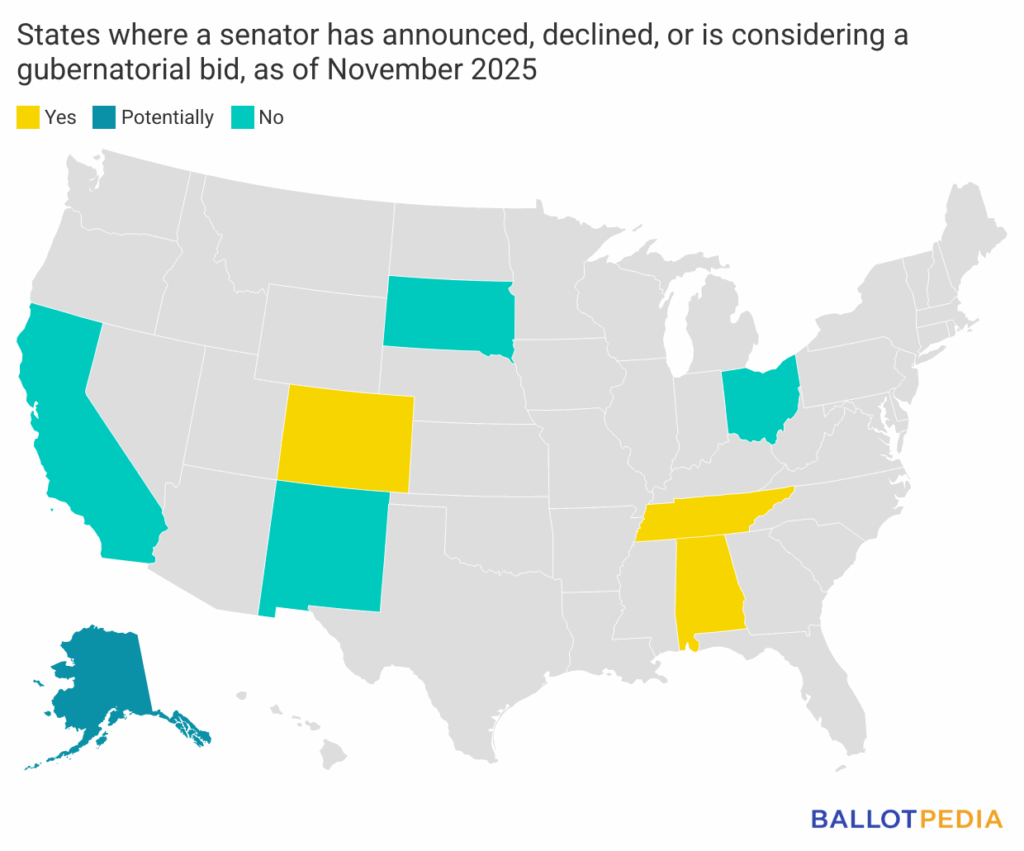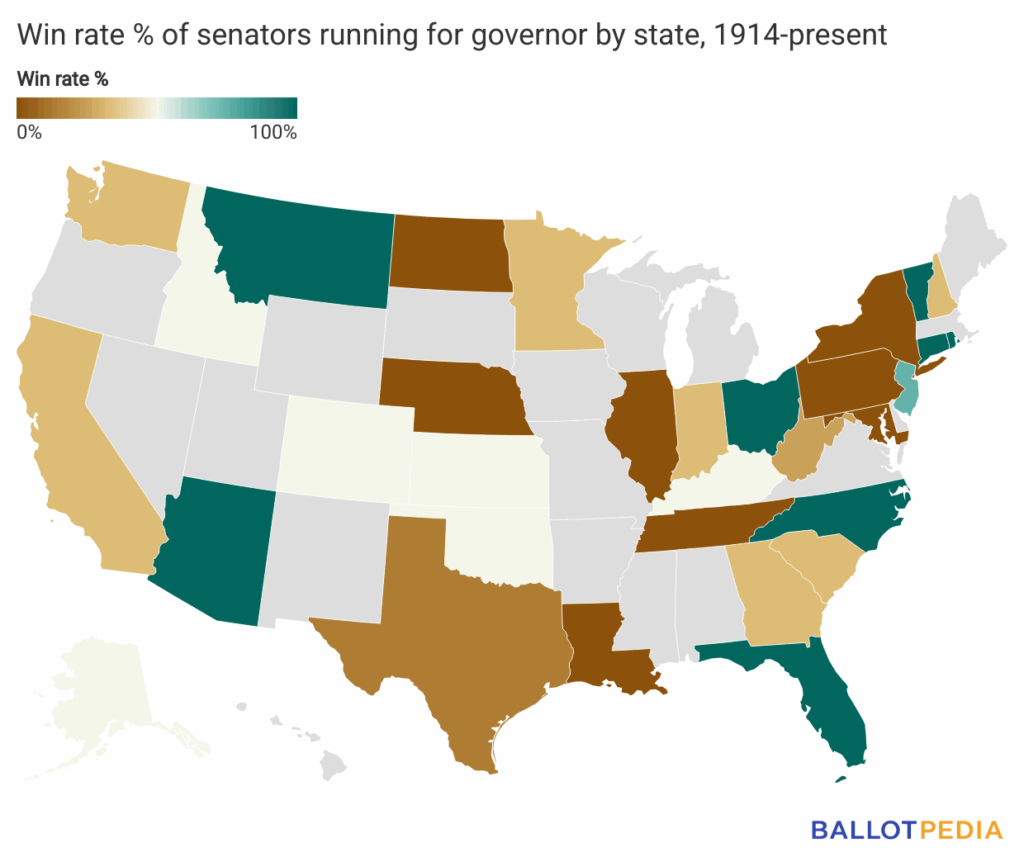Former U.S. Senator Doug Jones (D) announced on November 24 that he would run for governor of Alabama. Jones faces three other Democrats for the nomination. On the Republican side, U.S. Sen. Tommy Tuberville, who defeated Jones in 2020, faces one other Republican for the nomination.
Jones’ entry makes him the fourth senator running for governor in 2026 alongside Michael Bennet (D-Colo.), Marsha Blackburn (R-Tenn.), and Tuberville. This is the largest number of senators running in one cycle since 2010, when four senators also ran for governor that year. Going back to 1913, when Senators were first directly elected, four senators ran for governor in four years: 1920, 1954, 2010, and 2026. Additionally, one senator, Lisa Murkowski (R-Alaska), has expressed interest in running for governor. If she ran, 2026 would see the most senators running for governor in one year.

If Jones and Tuberville won their parties' respective nominations, this would be the first gubernatorial election in U.S. history where directly elected Democratic and Republican senators ran against each other. Senators have run against each other only two other times: in 1936, when Elmer Benson defeated Magnus Johnson for the Farmer-Labor nomination for governor of Minnesota, and in 1956, when Sen. Price Daniel (D) defeated Sen. W. Lee O’Daniel (D), who ran a write-in campaign, for governor of Texas.
Jones and Tuberville are the first U.S. senators from Alabama to run for the state’s governorship. Alabama is one of 18 states where a senator has never been their party’s nominee for governor. The state where the most senators ran for governor is Texas, where five senators have sought the office.

Across 69 elections held since 1914, senators who ran for governor won 27 times, lost the primary 21 times, and lost the general election 20 times. Additionally, one lost a nominating convention while another lost both the primary and a write-in campaign for the general election.



